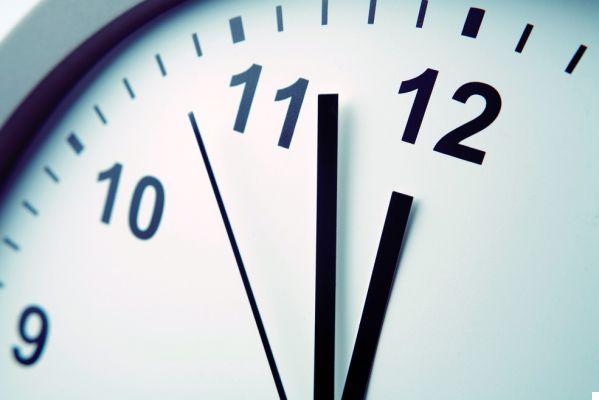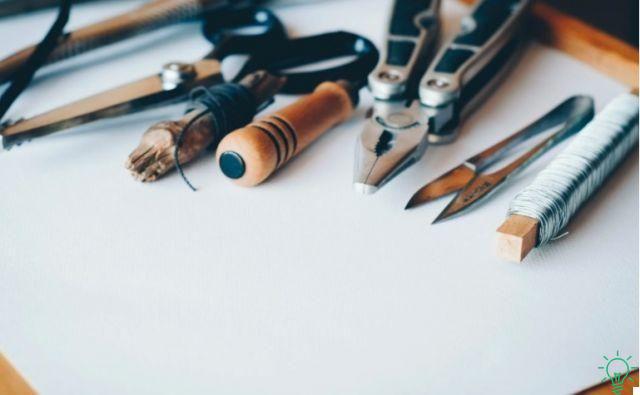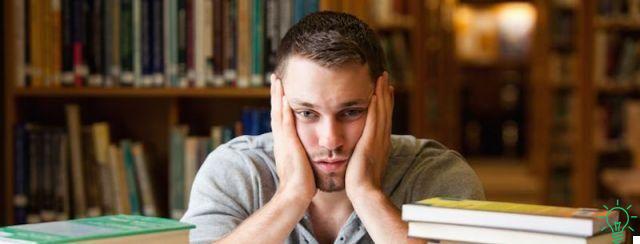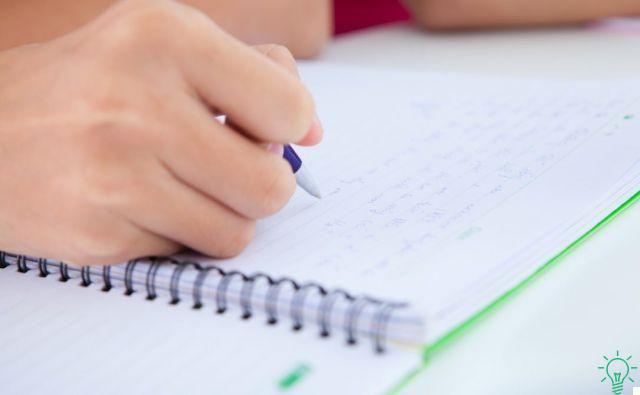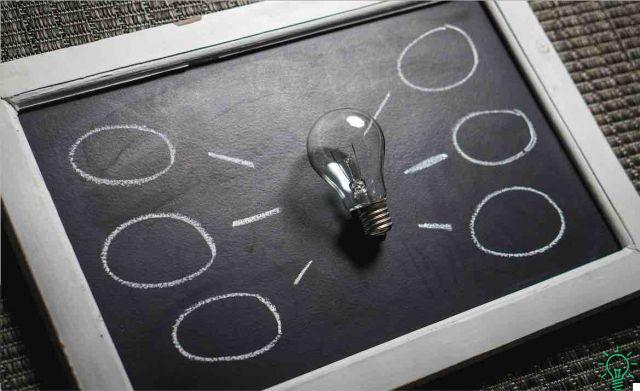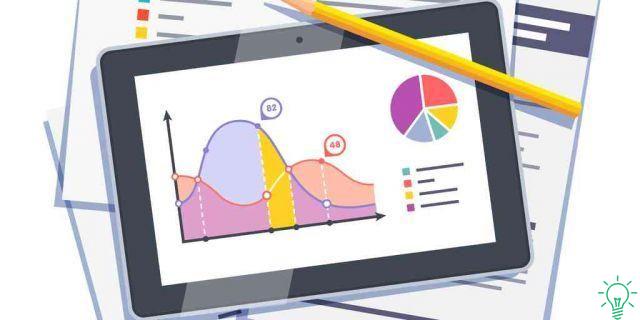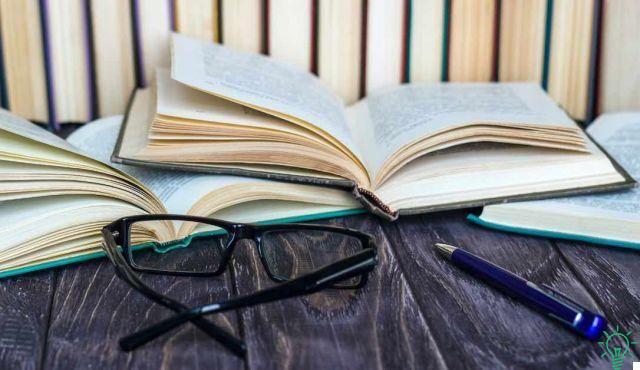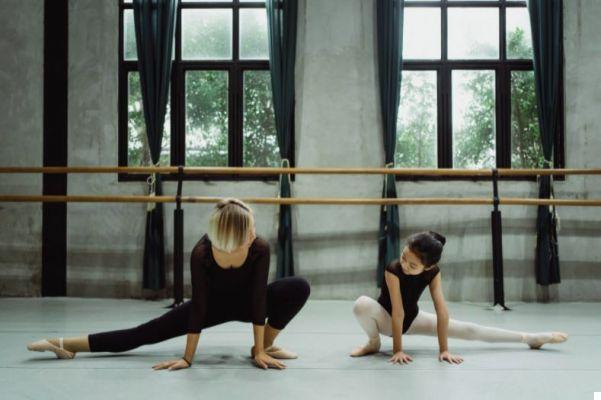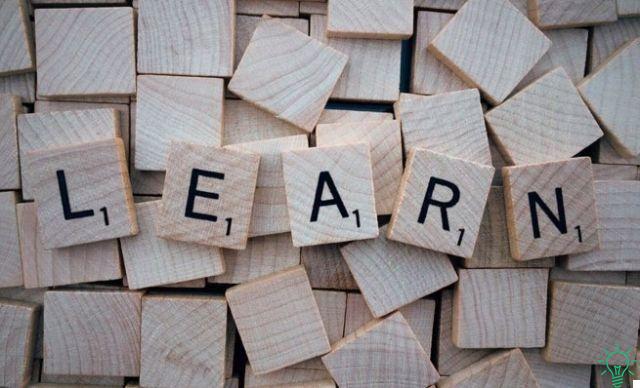
"Mental concentration? For me it's when you can keep playing tennis while someone is shooting in the street… I didn't grow up playing at the Country Club! "
Serena Williams
It is no coincidence that this article begins by quoting a sportswoman: I wrote it during the Rio Olympics in 2016, struck by the images of hundreds of Olympic athletes who, each in their own way, tried to reach before each competition. this state of mental grace we call concentration.
But what exactly is it about?
It is defined as the ability to direct our attention towards a certain action, thought, emotion or object.
And we can direct the our eyes on a particular object, i our thoughts on a given task, the our emotions towards a certain goal, only when we have the control of them.
For this reason, there is a huge difference between having and not having concentration, and this is not only true for Olympic athletes.
For example, find the concentration in the study it doesn't win medals, but it definitely allows you to study less is better.
There is a bad film with Christian Bale called "equilibrium", and although it is certainly not a masterpiece, it has a cult scene that well exemplifies the great power of mental focus.
A bit zarro but very illustrative, isn't it?
When the "emotional seismograph" represented in the video passes from very rough to a simple straight line, the viewer knows that Christian Bale has just regained his maximum mental focus, and they are in trouble for the bad guys!
Now let's leave aside the Truzzi films and come back to us:
If you have a hard time studying, it may be because you can't concentrate well. Then look at the table of signals below, and find out if you recognize yourself in some of them.
Typical signs of lack of concentration
The somewhat funny and paradoxical thing about the lack of concentration is that often you do not even notice that you suffer from it! If you think about it, it makes sense: precisely because your head is elsewhere, you can't even pay attention enough to what you are doing to realize that you are not focused.
However, there are a number of very characteristic "signals" that allow you to evaluate when you lack concentration in the study:
- you don't remember things you just read
- you continually move in your chair
- you play with your pen or whatever else you have in front of you
- you constantly lose things, or have a hard time remembering where you put them
- you feel low energy and motivation
- you lose precision in everything you do
- you can't make decisions
- check your e-mail or mobile phone frequently
- you make stupid mistakes about things you know
And the result is always more or less the same: you are slow and inconclusive when you perform a task, making it worse than your potential.
In short, the lack of concentration lowers your performance, exactly as it would happen to an athlete who performs his exercise and runs his race in a distracted manner.
But why do you lack concentration?
There are some causes that I would call "general", because they have more to do with yourself and your overall mental state.
The most important are:
- Lack of sleep and fatigue: a research by the San Francisco Brain Center has shown (and it is not the only one), that it is enough to lose even a few hours of sleep to significantly decrease your ability to concentrate.
- Anxiety and stress: Many people tell you with great conviction that under pressure they work better. All lies. Stress makes it much harder to concentrate, and the idea that you work better under stress is an illusion. Normally those people think that procrastinate too much, and they only get to work under pressure. Eventually they may get results, but with more effort than they could, and they certainly don't focus any more or better.
- Too many things to do (multitasking): as Daniel Goleman says, ours attention span it's not like a balloon that can be filled with so many different things; rather, it is like a tube in which liquid can flow in only one direction at a time. For this reason, when you do so many things, you don't actually do them all at once, but you constantly swing from one to the other. The result is a decrease in concentration in each of them.
There are also causes that depend on what is around you:
- inadequacy of the environment where you work (uncomfortable place, excessive noise, poor lighting)
- interruptions by family / friends
- I use out of control digital technology (I dedicated an entire article to this aspect, the one on digital minimalism).
And finally there are causes that depend specifically on the task you have chosen to perform, such as:
- when the task to be performed is boring
- when it's unstructured, that is, poorly defined
- when it doesn't motivate you / care
- when you don't think so priority compared to other things you have to do
Recognizing these causes is important, because understanding the problem is the first step in regaining mental focus if you have lost it. And when you understand the problem, you can start regain concentration mental through a series of rules and exercises that we will now see.
Rules for increasing mental focus
Let's forget mental concentration for a moment, and go back to the original meaning of the term "concentration", that is, what is studied in chemistry.
"The concentration of a component in a mixture is a quantity that expresses the ratio between the quantity of the component with respect to the total quantity of all the components of the mixture "
Thus a substance increases its concentration as it becomes prevalent over the others. And the concentration is maximum when that substance becomes the only one present (and in that case we no longer speak of a mixture, but of pure substance).
The same thing happens with mental concentration towards something: if you want to increase it, you have to reduce everything else to the maximum, at least temporarily.
And to do this, just follow 3 simple rules:
1. Eliminate external distractions
Cell phone messages, emails, phone calls, family members entering your room… Even if you have decided to stay focused for a couple of hours, the outside world may not allow you to do so. Unless give yourself and others rules. For instance:
- Silence the cell phone
- Disconnettiti da internet
- Tell yours and your little brother not to interrupt
I grew up in a house with two sisters, an aunt, two grandparents, two parents, a dog, four cats. It was beautiful, but until I decided to give everyone some rules, I just got nervous.
I was already struggling to stay focused, if I then allowed everyone to make things worse ...
But you have to apply the same intransigence with yourself: Shutting the world outside your room to browse the internet with more peace of mind is not what I mean by concentrate better in studying.
It then alternates moments of deep study, where you keep the rest of the world out of your reach, with small windows of time pre-established in which you will dedicate yourself to responding to email messages, phone calls, or reading facebook, or whatever else interests you.
This way you will do both things well.
2. Eliminate internal distractions
When you can't focus, it's often because you are thinking of something else. Your eyes are on one thing, but your inner voice he is talking to you about something else: about holidays, about someone you like, about a problem that has happened to you. AND silencing the internal voice is not as easy as silencing a cell phone.
When you realize that you can't concentrate because you are thinking about something else, there is only one thing to do: take a slip of paper, write down the distracting thought on it, and write a specific time when you will deal with it.
In this way you will not only "get" that thought out of your head, but also have established a specific moment in which to face it, it will be easier not to go back to it until that moment has come.
3. Make it clear what you want to focus on
At the 2016 Olympics, Niccolò Campriani won two golds in shooting. I can't imagine a better example of concentration: your heart is beating a lot because you are in the medal zone but you haven't won yet; the audience roars; you know that the result will also depend on what the opponent next to you does; the target is in front of you and it seems very far away….
Here, in fact, the target.
I imagine that Niccolò Campriani manages to hit an area the size of a coffee pod 50 meters away in all that mess precisely because at a certain point he manages to "Remove" everything around it, and to be alone with his target.
Concentrating deeply without having and focusing on a clear goal is frankly impossible. This is why I insist so much with my “7-minute technique” (you can download the pdf at the bottom of the article): never start a day without establishing at least 80% of what you will do!
If you define well "how much, when, what" to study, then you have a clear goal and it is easier to concentrate on studying.
Tricks to increase mental focus
The rules we have seen above are, so to speak, "cosmic": that is, they need an all-round change in relation to certain aspects of yourself and of the environment and people around you.
However, there are also some tricks very useful that allow you to increase mental concentration whenever you need it, and that do not require a lot of effort. For instance:
- Do mental calculationsFor example, before starting a written exam, start at 84 and count backwards, subtracting 7 each time. This little mental task, albeit a simple one, forces your brain to forget about everything else as it does it. Once you reach zero you will be ready to turn your attention towards your goal.
- Listen your heart rate, or your breathing, for a couple of minutes.
- Count the words: for example, before starting to study a text, count the words of the first 2 or 3 paragraphs one by one. Again the task is simple but completely absorbing for our brain, and therefore forces it to focus.
- Point at an object: do you remember the example of the Olympic shooting champion Nicolò Campriani? Put an orange (or any other small fruit) on a table and sit a couple of meters away from it; then stare at it and imagine you have to hit it with a stone. Why do you see, I'll look it is an activity that not only requires concentration, but that man has been doing for a couple of million years, since he learned to throw stones to hunt animals. For this reason, aiming at an object can raise the level of attention of your brain in a natural and effective way.
You may have noticed one aspect that these "tricks" have in common: they make you relax.
In fact, there is a huge correlation between increased relaxation and increased concentration. The more you relax, the more you are able to focus. And the more you focus on something, the more relaxed you feel: worries, problems, and distractions vanish when you become completely absorbed by what you are doing, until you reach, in cases of deeper concentration, an almost karmic state of happiness.
It is the experience of the so-called "flow”, Described systematically by the psychologist Mihály Csíkszentmihályi in the early 70s.
The dark side of concentration
This video proposes a concentration / attention test which puts most people in check.
Not bad ... Chances are you got fooled by the test too, right?
Now, this concentration test proves once again that very few things are totally positive or totally negative. There is always an opposite side to discover. We already saw this in the article on the benefits of procrastination.
By its very nature, to concentrate is to exclude of things from the sphere of your attention, with all the negative consequences that this can bring not only when you study, but in life in general.
So let's see how you can get over it.
Attention, concentration, focus: three resources to study better.
Concentration, attention and focus are not the same thing. And understanding the distinction between each of these mental states allows you to overcome the limits of each of them.
When you are careful, your mind is like a sponge trying to register and perceive everything around it, selecting what interests it, asking itself questions, noticing details. This is the moment of creativeness, because you are open to everything, and to choice, because you will inevitably have to select some of these stimuli and move on to the next state: the one in which you focus.
When you focus direct this "" generalized "attention to something very specific, excluding all or most of the rest. And you can only do it wisely if you have been careful first. However, this type of concentration is a phenomenon limited in time, which serves to increase your performance on a task short period.
When you go over the long haul, it is essential to have what the British call "focus": You have the focus when that you are able to concentrate several times and for a long time towards a single goal, in order to achieve it.
To be clear, let's go back for a moment to the champion Niccolò Campriani: thanks to his ability to concentrate is able to aim and strike during a match; while it is thanks to the focus who manages to train for years in view of an Olympic success.
Note how the two, even if connected, presuppose different capacities and efforts: one could for example be able to concentrate adequately to hit 5 targets in about thirty seconds; but it is by no means certain that he has the focus necessary to train for years to be able to do so.
Just as someone might be able to train for years, but then not be able to find the right concentration to achieve maximum performance during the race.
How can you use these three resources to study better?
We have seen many times in the blog that an effective study method is not based on a single resource, but instead teaches you to use many different things intelligently in many different ways. And only in this way do you get the maximum result with minimum effort. Therefore:
- When you go to class, when you attend to an explanation, when in general you are confronted for the first time with something new, it is very important to have the right one caution. In this way you keep your mind open and you are able to reason without prejudices and schemes, developing your ability to inspiration to the maximum.
- When you are at home for an afternoon of study, or when you have to take an exam, it is indispensable achieve maximum concentration. As we have seen above, this allows you to work less and feel much more relaxed, thus expressing your full potential. Use the rules and tricks I taught you to increase your study focus.
- But when it comes to studying not for an afternoon, but for years, as happens to those who want to finish a university, what matters most is the focus. And you get it not so much thanks to the "desire to study", but rather if you are able to dominate your goals and your long-term choices
A greeting! Anthony.





